建筑外观效果图 ©刘国威
建筑设计 莘野佚筑设计工作室项目地点 天津市蓟州区建筑面积 1750平方米建成时间 2023年6月
本文文字由设计单位提供。01:项目缘起Project Origin
梨木台风景区地处天津最北端,是国家地质公园、国家森林公园、国家4A级旅游景区。这里峰峦叠翠、峡谷雄险、林海秀幽、溪水长流,素有“天津的神农架”之称。90%以上的森林覆盖率使这里成为名副其实的天然氧仓,是周边地区游客休闲徒步的重要目的地之一。2021年夏天,业主与景区达成合作,计划将位于景区入口附近的一处休闲驿站打造成多业态的民宿综合体。莘野佚筑团队也在这个时候收到业主的邀请,负责该项目的设计工作。The Limutai Scenic Area, located at the northernmost tip of Tianjin, is recognized as a national geological park, national forest park, and a national 4A-level tourist attraction. Characterized by its verdant peaks, majestic canyons, lush forests, and year-round flowing streams, it is often referred to as " Shennongjia in Tianjin". With a forest coverage rate exceeding 90%, the area serves as a de facto natural oxygen bar and is one of the main destinations for tourists from the surrounding areas seeking leisurely hikes. In the summer of 2021, the client established a partnership with Limutai Scenic Spot, to transform a pit stop near the entrance into a multi-faceted resort complex. During then, SYYZ Architects was invited by the client to take on the design work for this project.
山林深处的民宿 ©刘国威作为景区内的第一家民宿,得天独厚的自然景观资源成为了项目的先天优势,然而景区人流量大带来的热闹的气氛与民宿自身对私密宁静氛围的要求之间存在矛盾,加之建设成本有限,设计工作充满挑战。我们希望通过对现状空间及环境的创新规划,营造独属于这片场地的场所感,为旅人提供亲近自然的独特旅居体验,使之成为每一位旅人心中那处远离喧嚣、充满野趣,又适合现代人生活的身心疗愈场。正如“水云乡”这个名字的寓意一样:枕山而卧、倚水为眠、不负这般胜景。As the first resort within Limutai scenic area, the project's innate advantage lies in its unparalleled natural landscape resources. However, there is a contradiction between the lively atmosphere brought by the large flow of visitors in the tourist attraction and the resort's own requirement for a private and tranquil environment, compounded by the limited construction budget, making the design quite challenging. We hope to create a sense of place unique to this site through innovative planning of the current space and environment, providing travelers with an exclusive living experience close to nature. Our aim is to make it a sanctuary away from the hustle and bustle, full of natural charm, and suitable for modern living, where both body and mind can heal. Just as the name "Shui Yun Xiang" implies: to rest with mountains as the pillow and water as the bed, living up to the beauty of such a view.
隐于自然的建筑 ©刘国威
02:场地策略Site Strategy
时隔3年,第一次到现场踏勘的画面仍然记忆犹新:从山门一路曲折而上,伴着水声潺潺,在经过一段林荫路后,视线豁然开朗,颇有五柳先生笔下桃花源的意味。项目用地依山势展开,整体西高东低,被南北两座青峰环抱;一条溪流从场地中央涓涓而过,天然地划分出南北两个区域,一座木桥悬于流水之上,充满诗情画意。小溪北岸,蜿蜒而过的是游客登山的必经之路,路旁有一大一小两栋闲置的二层建筑。在与业主充分沟通后,大家一致决定对现状建筑进行改造,作为客房区域,并在隔岸相望的空地上布置配套商业业态,利用民宿的区位优势,面向景区全部游客,将其打造为登山路线上的重要补给节点。The vivid image of our first site visit three years ago remains etched in my memory: the path from the mountain gate meandered upwards, accompanied by the gentle murmur of water. After traversing a shaded forest path, the view suddenly expanded, reminiscent of the idyllic Peach Blossom Spring described by the ancient poet Tao Yuanming. The project site unfolds along the mountain contours, with a general gradient from west to east, embraced by two verdant peaks to the north and south. A stream meanders through the middle of the site, naturally dividing it into two areas. A wooden bridge arches gracefully over the flowing water, full of poetic charm. On the north bank of the stream, the winding path is a necessary trail for tourists during the hike, flanked by two vacant two-story buildings, one larger and one smaller. After thorough communication with the client, it was unanimously decided to repurpose the existing structures as resort. Across the water, on the vacant land, supported retail functions will be arranged. Leveraging the resort's strategic location, the target demographic will be expanded to all visitors to the scenic area, transforming it into a vital supply node along the hiking route.
场地区位 ©莘野佚筑设计工作室
水云乡总体布局 ©刘国威
民宿与商业隔水相望 ©刘国威03:老房子的新生The Rebirth of the Old Buildings
现状条件Original Site Conditions
西侧主楼长约40米,入口位于楼体中央,紧邻楼梯间。左右两侧并列布置房间,每间面积约二十平方米,通过北侧走廊进入。房间窗户虽面向景观但尺寸较小,且隔墙以承重墙为主,不能拆除。楼体基座与道路之间存在高差,楼前是一片草坪。东侧则为一栋石头小楼,原本功能是餐厅和后勤辅助用房,空间分隔凌乱。由于靠近山体,经过长时间雨水冲刷,使得房间阴暗潮湿。原本漂亮的石头立面也在时间的侵蚀下,出现脱落的情况。这样的现状条件与理想中的客房有着很大的差距。The existing main building on the west side is approximately 40 meters long, with the entrance located in the center of the structure, adjacent to the stairwell. Rooms are arranged side by side, each with an area of about twenty square meters, accessible through a corridor on the north side. Although the room windows face the landscape, they are small in size, and the partition walls are mainly load-bearing walls that cannot be demolished. There is a height difference between the building base and the road, with a lawn in front of the building. To the east of the site stands a small stone building, originally functioning as a restaurant and auxiliary rooms, with a disorderly spatial arrangement. Due to its proximity to the mountain, after long-term erosion by rainwater, the rooms are dark and damp. The once beautiful stone facade has also suffered from the ravages of time, showing signs of peeling. These current conditions are far from the ideal resort we envision.
场地现状 ©刘国威
建筑策略Architecture Strategy
对现状建筑的改造从功能梳理开始:我们将两栋建筑之间的草坪区域进行部分铺装,形成民宿的落客空间,并将接待厅布置在主楼最东侧;设置大尺度台阶并转向客人到来的方向,呈现出欢迎的姿态,同时增强入住仪式感;将建筑前场空间抬高,作为民宿客人的专属休息区,并通过植被绿化与登山道路间隔,完成与景区客流的分离;取消主楼内部楼梯间,在东西两侧增设外挂楼梯,释放室内空间,并形成东西贯通的环形动线。The renovation of the existing buildings begins with a functional overhaul. We have partially paved the lawn area between the two buildings to create a drop-off space for the resort and positioned the reception hall at the easternmost part of the main building. A grand stairs has been oriented towards the direction from which guests arrive, offering a welcoming gesture while enhancing the ceremonial check-In experience. The front space of the building has been elevated to serve as an exclusive relaxation area for the resort’s guests, separated from the hiking trail by vegetation and greenery, effectively partitioning it from the tourist circulation of the scenic area. The internal stairwell in the main building has been removed, with external staircases added to the east and west sides to free up interior space and create an east-west continuous circular circulation route.
入口空间 ©刘国威
夜幕下的民宿 ©刘国威同时,我们将一、二层原有北侧走廊与房间打通,扩大客房面积。家庭亲子客房被设置在拥有较好通达性的一层。将南侧窗台拆除,作为新的客房入户门,并在门前设置围墙,为每间客房提供独立的入户庭院。针对围合建筑与山体之间的消极空间,我们将其打造为一层客房的专属观景庭院。二层房间则因其良好的景观视野及私密性,主要安排情侣房及套房。在建筑北侧二层外挂走廊,保持北向入户,将景观留给客房。同时,对南侧幕墙做内退处理,创造开放的阳台空间,提升客房品质。东侧小楼则在现有平面基础上,重新规划布局,将一层南侧空地抬高作为庭院,并在屋面植入观景露台,打造四间高品质套房。The existing north corridors and rooms on the first and second floors have been opened up to expand the room area. Family rooms are located on the first floor, which offers better accessibility. The southern windowsills have been removed to serve as new guest room entry doors, with walls built in front of the doors to provide each room with a private courtyard. The negative space between the building and the mountain has been enclosed to create an exclusive backyard for the first-floor guest rooms. The second-floor rooms, due to their good landscape visibility and privacy, are mainly allocated for couples' rooms and suites. An external corridor is hung on the north side of the second floor, maintaining the north entrance, leaving the views for the guest rooms. At the same time, the southern curtain wall has been recessed to create an open balcony space, enhancing the quality of the guest rooms. The building on the east side has been spatially re-arranged based on the existing layout, raising the southern open space on the first floor as a courtyard, and introducing the concept of a viewing terrace on the roof to create four high-quality suites.
民宿主楼原始平面图与改造后平面图 ©莘野佚筑设计工作室
石头小楼原始平面图与改造后平面图 ©莘野佚筑设计工作室入目皆为绿,灵动自然。我们希望建筑以一种谦逊的姿态融入其中。毛石、木材、夯土、稻草、木模混凝土......这些材料朴素的质感,与山林的绿意交织在一起,如同一首协奏曲,叙述着野趣盎然,将人们的注意力引导至一件件的小事上——荡漾的波光、摇曳的树影、淙淙的水声,平凡但美好。同时,我们在主楼立面上嫁接一组斜向竖格栅,既作为雨檐,也为客房提供隐私,与连绵的山体相呼应,赋予建筑起伏的韵律感。二层东侧外挑的景观飘窗,好似一盏明灯,指引旅人归家的路。Everywhere you look is a sea of green, full of vibrant nature. We aspire for the building to blend into this context with a humble demeanor. Rustic stone, wood, rammed earth, straw, wood-form concrete... The simple textures of these materials interweave with the verdancy of the forest, like a concerto narrating the abundant wilderness, drawing people's attention to the small, yet beautiful things—the rippling water, the swaying tree shadows, the babbling brooks. At the same time, we have incorporated a set of diagonal vertical louvers on the façade of the main building, serving both as eaves to shield from the rain and as a privacy screen for the guest rooms, echoing the rolling mountain landscape and giving the building a sense of undulating rhythm. The protruding landscape bay window on the east side of the second floor, like a bright beacon, guides travelers on their way home.
主楼改造策略 ©莘野佚筑设计工作室
石头小楼改造策略 ©莘野佚筑设计工作室
自然质朴的材料 ©刘国威
石头立面 ©刘国威
围墙与格栅为客房提供隐私 ©刘国威
自然、阳光与几何线条 ©刘国威
空间体验Spatial Experience
游走体验的营造一直以来是我们设计工作中非常重要的一部分。我们相信空间是拥有情绪的,影响着每个进入其中的人。穿行于建筑之中,身体的感知完成从广袤山林到舒适房间的过渡,心绪也逐渐归于平静。Crafting an experience of wandering has always been an essential part of our design work. We believe that spaces possess emotions that affect everyone who enters them. Navigating through the building, one's sensory experience transitions from the vastness of the forest to the comfort of the rooms, with the mind gradually finding peace.
沿着楼梯、拾级而上,视线先是被一堵墙限定,突然出现的挑台将注意力引向楼侧茂密的枝桠,一条石阶隐约其中。转身步入走廊,刻意压暗的色调放大自然的绿意,温暖的木隔栅使绿的清冷得以被中和,镜面材料模糊了现实的边界,营造出虚幻的错觉感。微光照射下,树影轻摇,洒满了整个空间。推开木门,移步房间,山林美景被通透的景窗装裱,四时更迭间,渲染出一幅幅生动的画卷。温馨惬意的客房氛围让每一位远道而来的客人卸下旅途的疲惫,身心得以放松下来。顺势坐到窗前,浮光掠影间,“我”已融入自然,生活的琐碎淡去,一切仿佛在此刻凝滞。Climbing the stairs, step by step, the view is initially confined by a wall, but then a sudden balcony captures the attention, drawing the gaze to the dense foliage on the side of the building, where a stone staircase is faintly visible amidst it. Turning into the corridor, the deliberately subdued colors highlight the greenery of nature. The warm wooden latticework neutralizes the coolness of the green, while the mirrored materials blur the boundaries of reality, creating an illusory sense. Under the soft light, the shadows of the trees gently sway, filling the entire space.Open the wooden door and stepping into the room, the mountain and forest scenery is framed by the transparent windows, rendering vivid pictures with the changing seasons. The cozy and comfortable atmosphere of the guest room allows every guest who has come from far away to let go of their journey's fatigue and relax. Sitting by the window, with the fleeting light and shadows, "I" have already merged with nature, where the trivialities of life fade away, and everything seems to stand still at this moment.
左:楼梯是游走体验的一部分;右:楼梯回望 ©刘国威
树影洒满房间 ©刘国威
景观飘窗扩展室内空间 ©刘国威
山林美景被景窗装裱 ©刘国威
观景庭院 ©刘国威“江山风月,本无常主,闲者便是主人。”我们理想中的民宿不仅仅是旅途中的容身之所,更应该为旅人提供一种有别于都市生活的体验,是身心的疗愈场。伴着微风,泡壶热茶,期待听一场山雨,将注意力聚焦于当下,感受曾经被忽略的美好,这或许才是生活该有的样子。"Scenery and natural beauty do not always belong to a master; rather, they are best appreciated by those who take the time to enjoy them." The idealized resort we envision is more than just a place to stay during one's travels; it should offer an experience that contrasts with the hustle and bustle of city life, serving as a retreat for the mind and spirit. Sipping a pot of hot tea in the gentle breeze, looking forward to the sound of mountain rain, focusing on the present moment, and rediscovering the beauty that was once ignored—this is perhaps the true essence of life.
温暖惬意的客房氛围 ©刘国威
04:水的意象The Imagery of Water
在小溪南岸商业区的设计上,我们希望打破传统“商业街”的模式,以一条柔美的水带为线索,通过一座座拱桥连接,将咖啡吧、餐厅、农产品市集、休闲茶馆等功能业态进行串联,并结合场地高差关系,营造一座“可游、可观”的山间小游园,与对岸民宿建筑遥相呼应。For the design of the retail area on the south bank of the stream, our vision is to deviate from the conventional "commercial street" approach. We intend to use a gentle ribbon of water as a guiding thread, with arched bridges linking various functional spaces such as cafe, restaurant, market, and tea house. By leveraging the site's height difference, we aim to create a mountainous retreat that is both "walkable and picturesque," serving as a counterpart to the resort on the opposite side of the river.
水串联起功能业态 ©刘国威
夜幕下的商业区 ©刘国威05:结语Epilogue
曾有很多朋友向我们提出疑问,为何将工作室命名为莘野佚筑,这里面有何含义。其实在古文中,莘野指代隐居之所,而建造之人可能就是居于其中的隐者,是位佚名之人。这表达了我们的一种营造价值观,即以一种顺势而为的方式介入每一个项目,不强调建筑师个人意志的表达,努力营造与内心共鸣的空间。“水云乡”项目是对这一思考宝贵的经历,也更加坚定了我们的实践方向。Many friends have asked us why we named our studio Shenye Yizhu and what it means. In ancient texts, "Shenye" symbolizes a place of seclusion, and the builder could be the hermit dwelling within, an anonymous person. This reflects our value in design and construction, which is to engage with each project in a manner that follows the natural flow, without emphasizing the personal expression of the architect, and striving to create spaces that resonate with the inner self. The "Shuiyun Xiang" project is a precious experience in practicing this philosophy and has further solidified our direction.
从初次踏勘到项目落地,历经两年时光,我们与业主、施工方一起见证了这片土地的春夏秋冬。施工初期移栽的樱桃树,如今已经可以与到访游人分享它努力生长后的果实了。From the initial survey to the completion of the project, it took two years. We experienced the seasons of this land together with the client and the construction team. The cherry trees that were transplanted at the beginning of the construction now bear fruit, ready to share with visitors the rewards of their vigorous growth.
改造前后对比 ©刘国威
设计图纸 ▽
总平面图 ©莘野佚筑设计工作室
民宿区首层平面图 ©莘野佚筑设计工作室
民宿区二层平面图 ©莘野佚筑设计工作室
商业区首层平面图 ©莘野佚筑设计工作室
完整项目信息
项目名称:水云乡
项目设计时间:2021年7月—2022年3月
项目建造时间:2021月9月—2023年6月
占地面积:10亩建筑面积:1750平方米
建筑设计:莘野佚筑设计工作室
室内设计:莘野佚筑设计工作室
景观设计:莘野佚筑设计工作室
联络人姓名:周柏岑
联络邮箱:syyz_architects@outlook.com
联络微信:helen0862
公司所在地:天津
主创建筑师:汪俊成
设计团队:周柏岑、闫涛
项目地址::中国,天津,蓟州区,下营镇船舱峪村
委托方:季忆文旅产业发展(天津)有限公司
主要材料:木饰面(塔唯),断桥铝门窗(金鹏),镜面不锈钢板(钿联)、毛石板、夯土板、木模混凝土板、竹席、艺术涂料
空间摄影:刘国威
项目类型:建筑/室内/改造


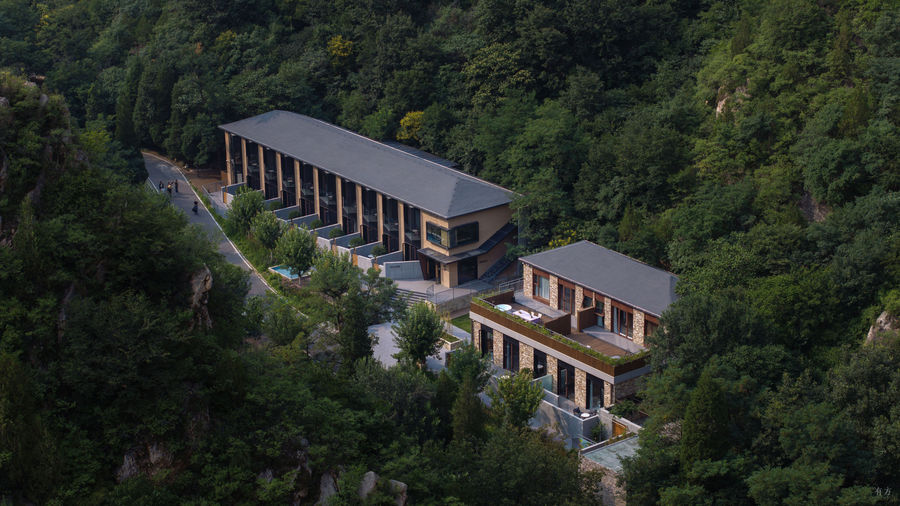
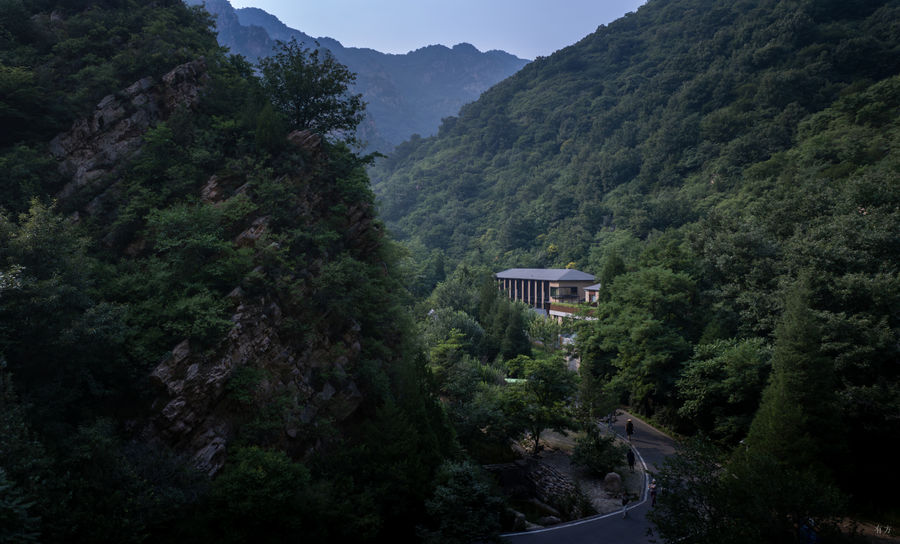
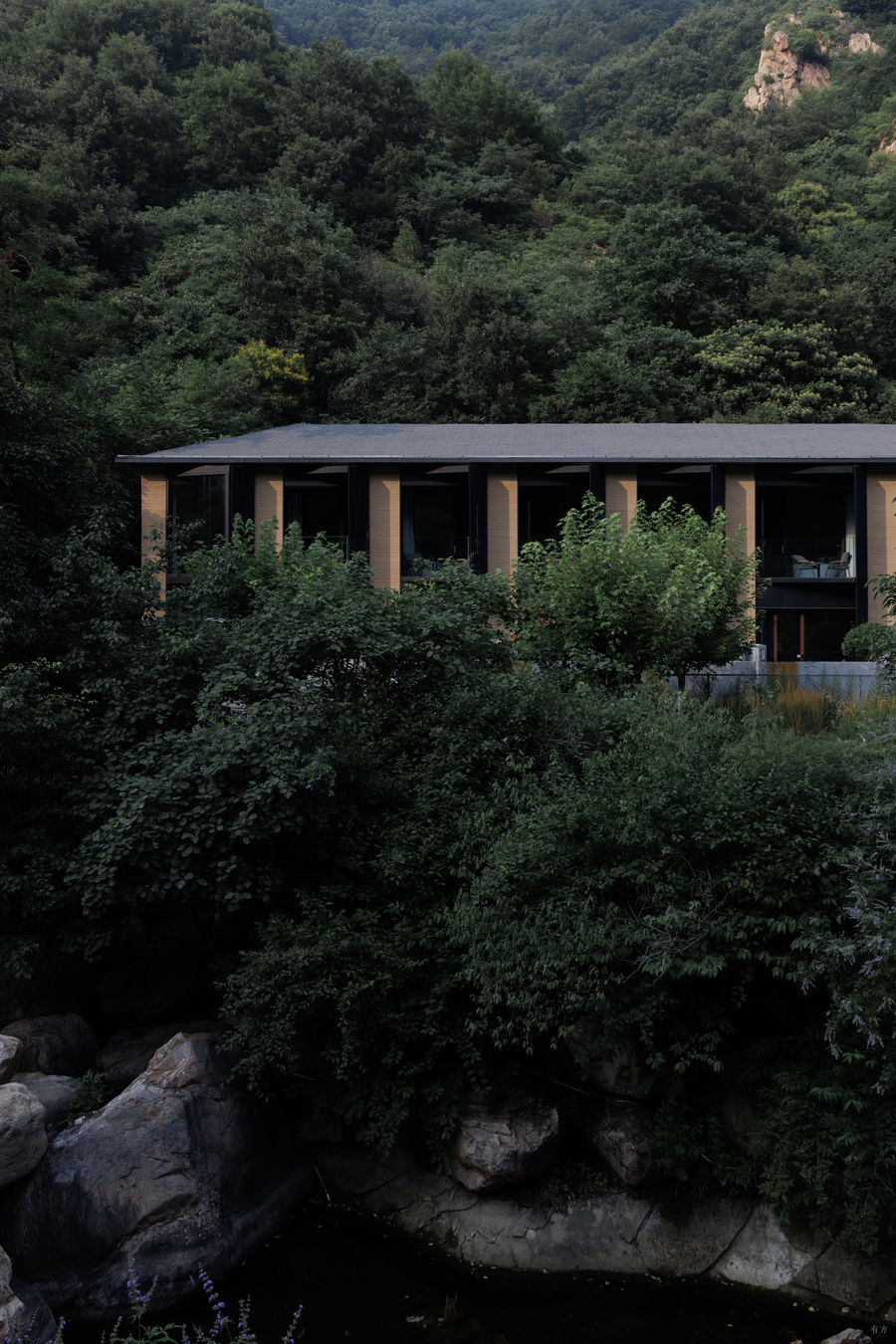
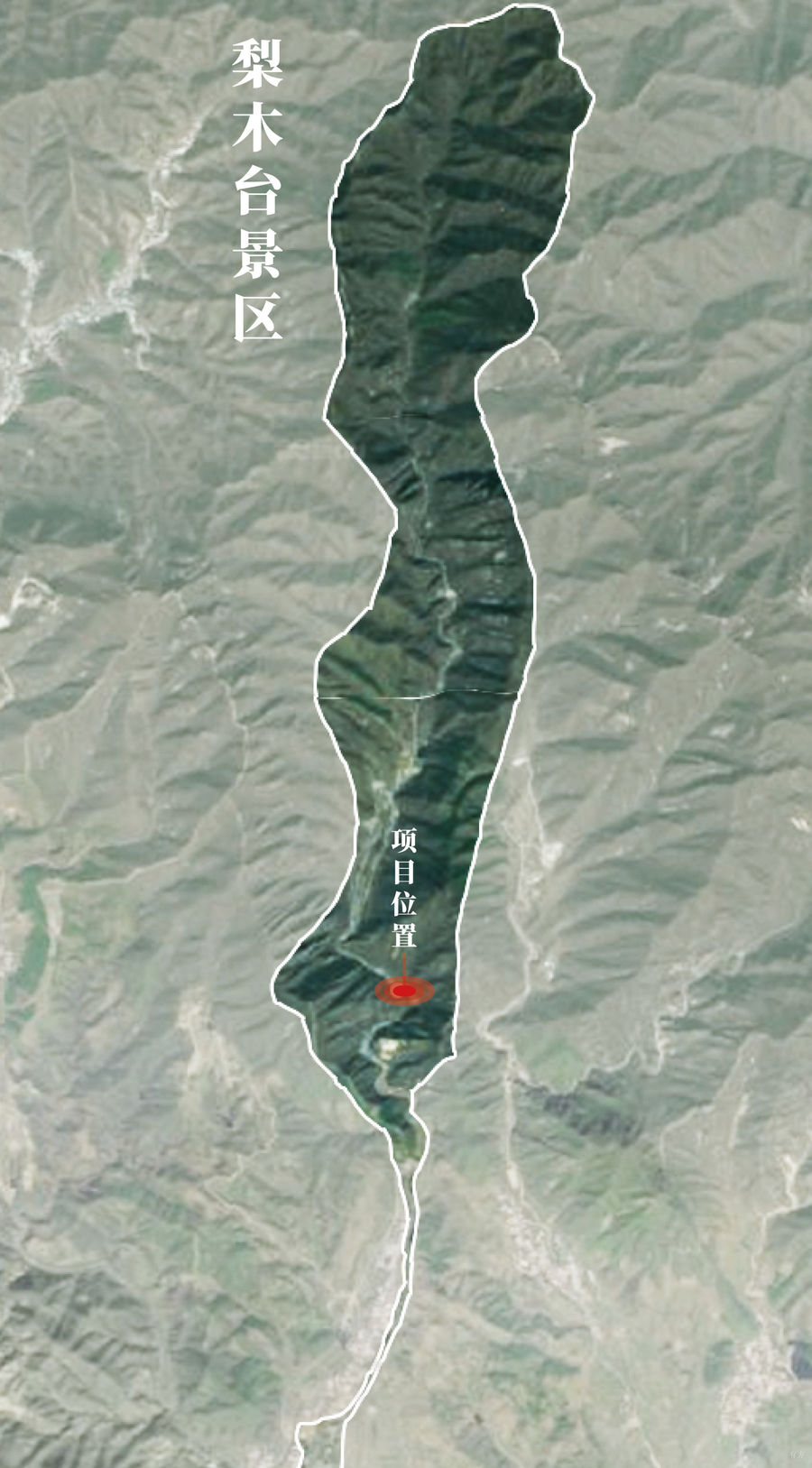
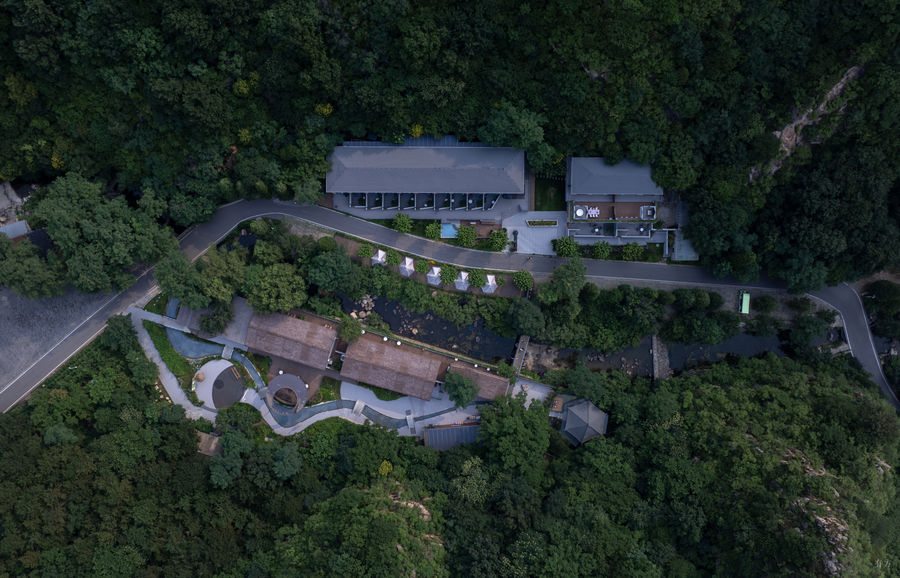
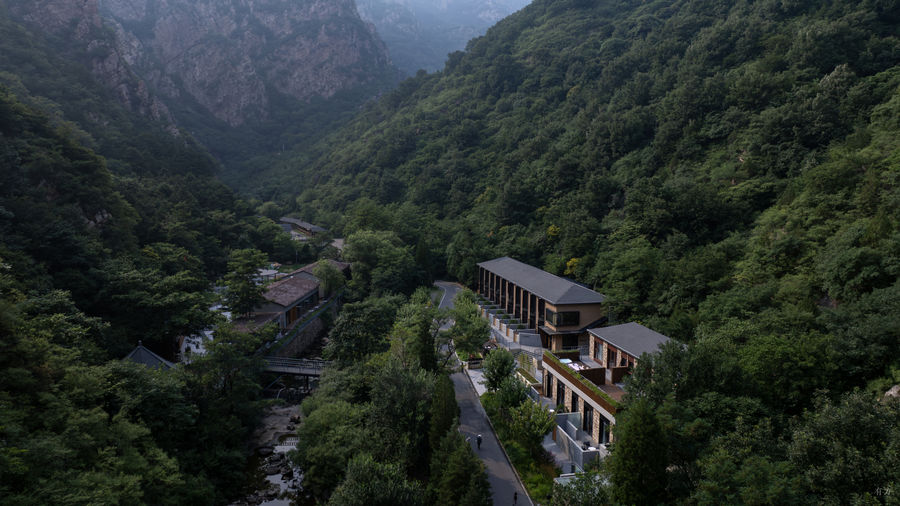
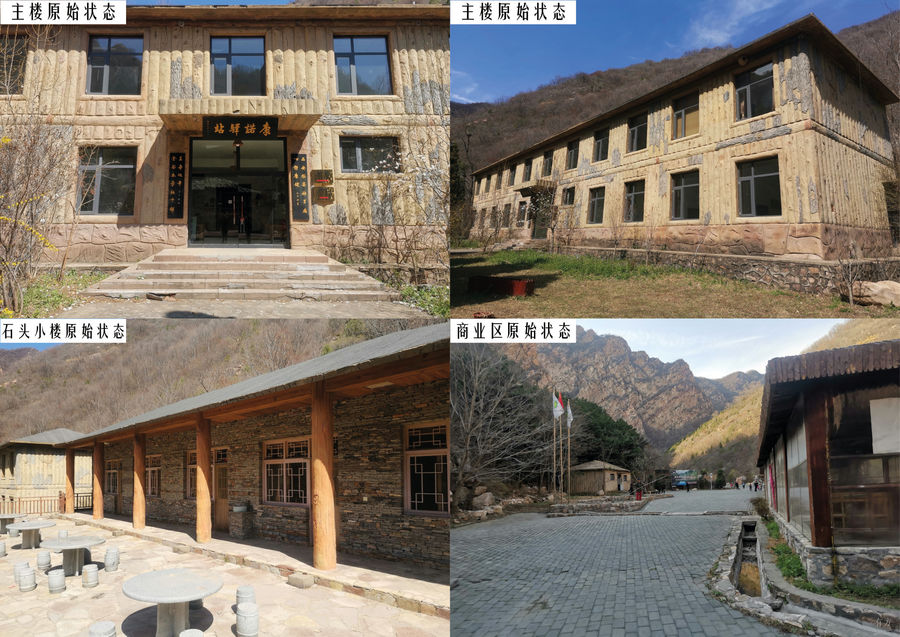
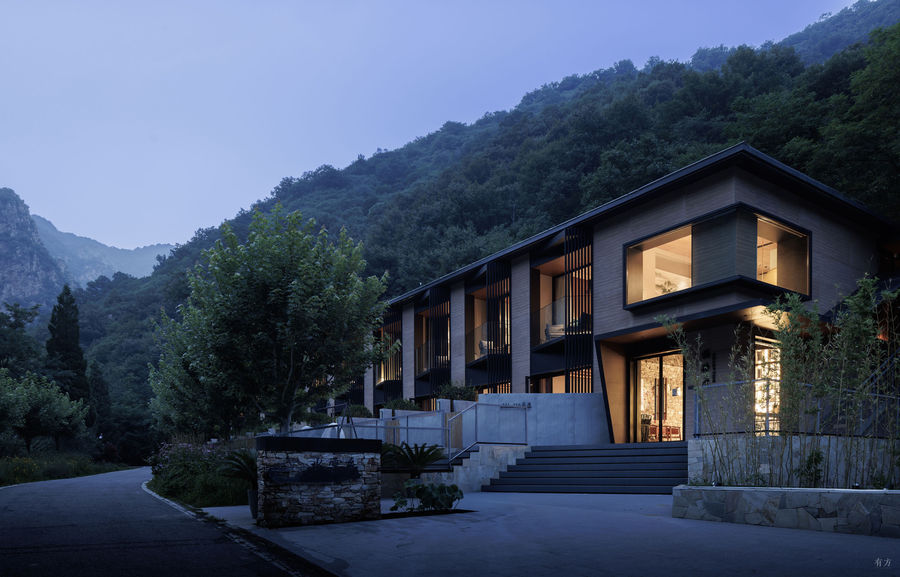
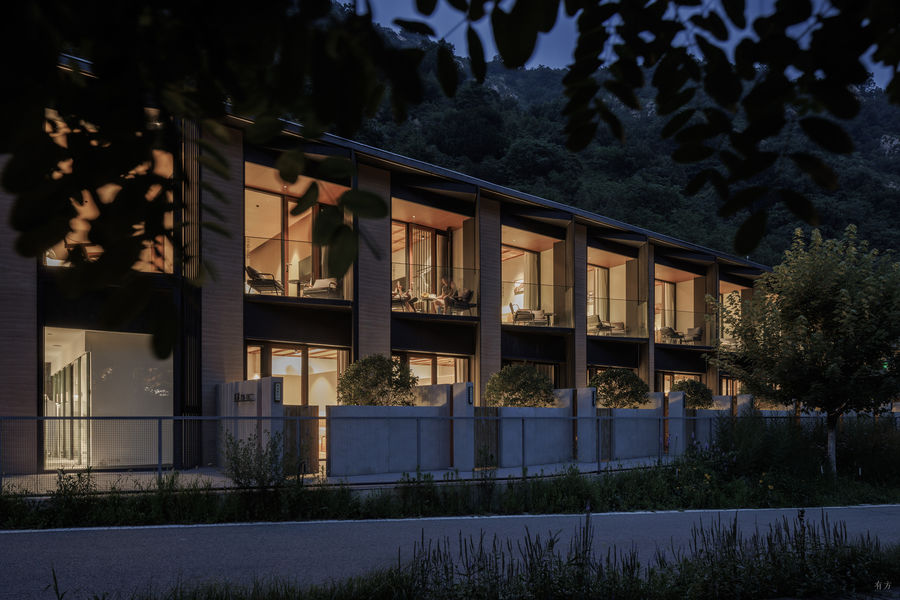
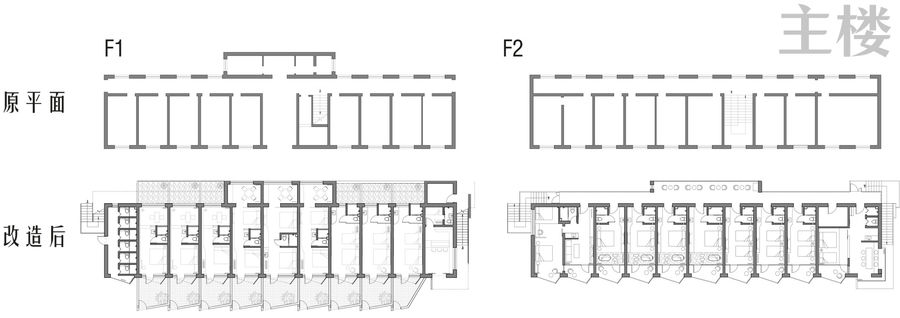
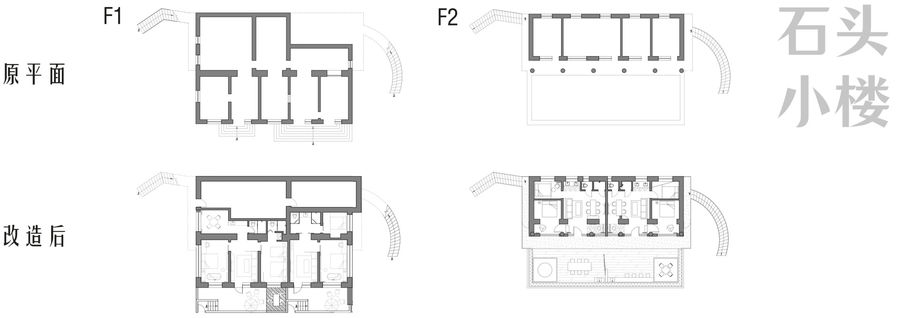
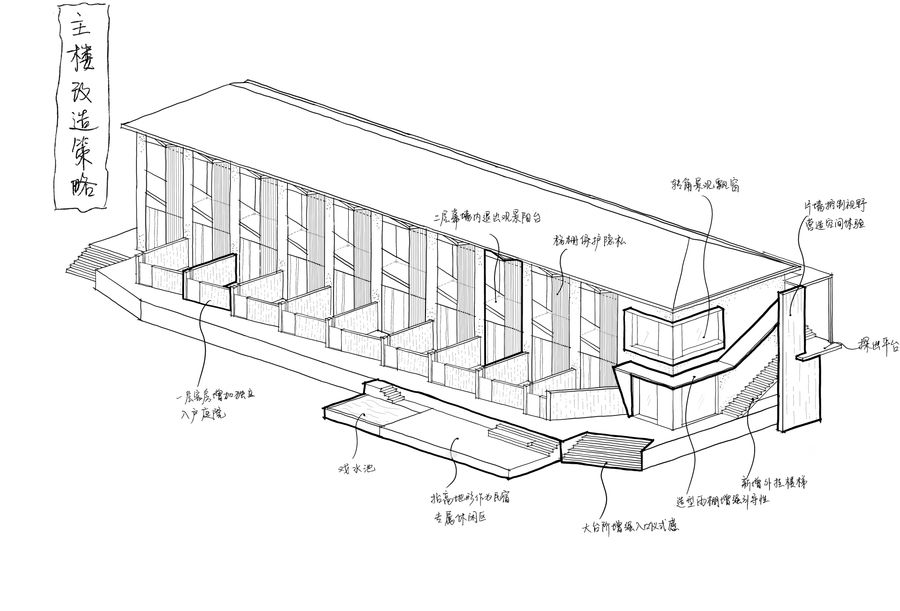
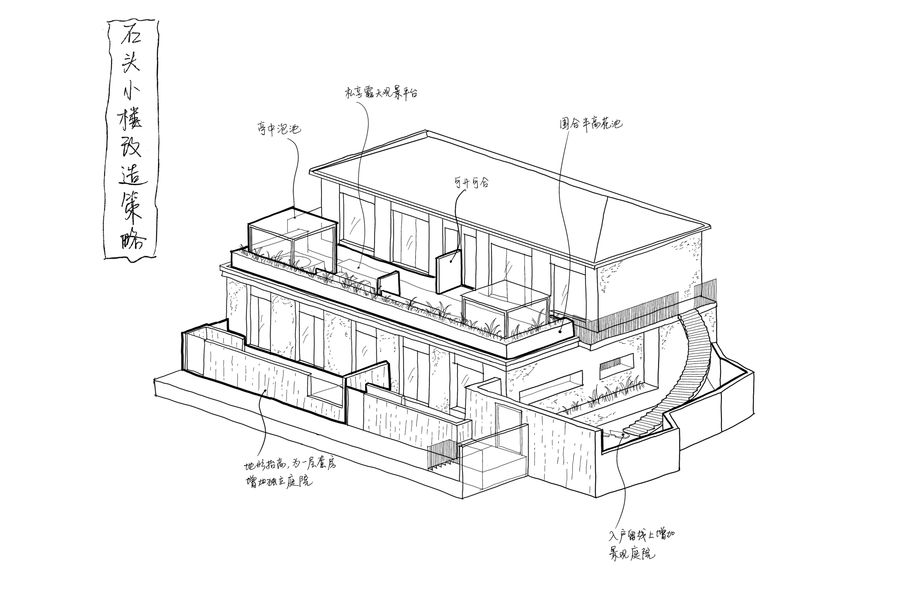
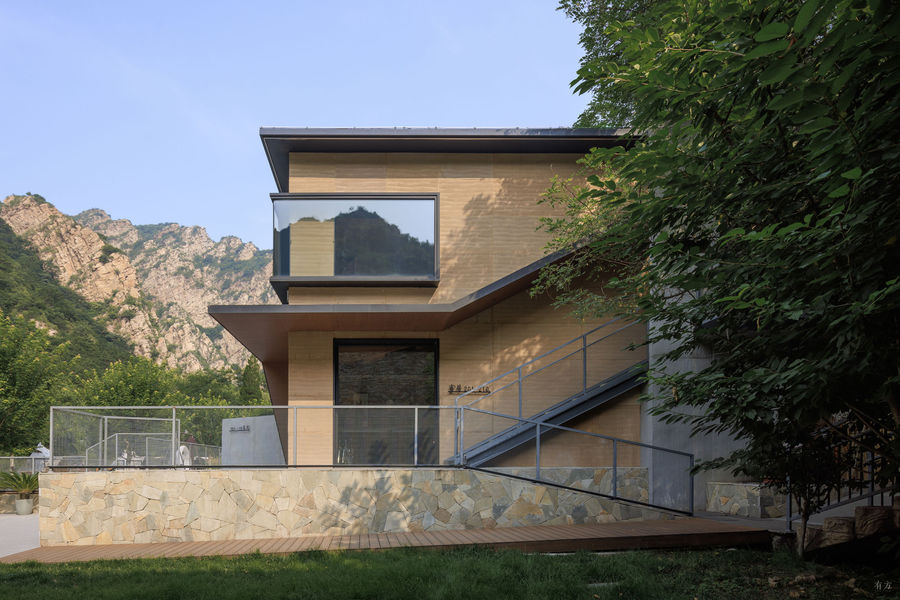
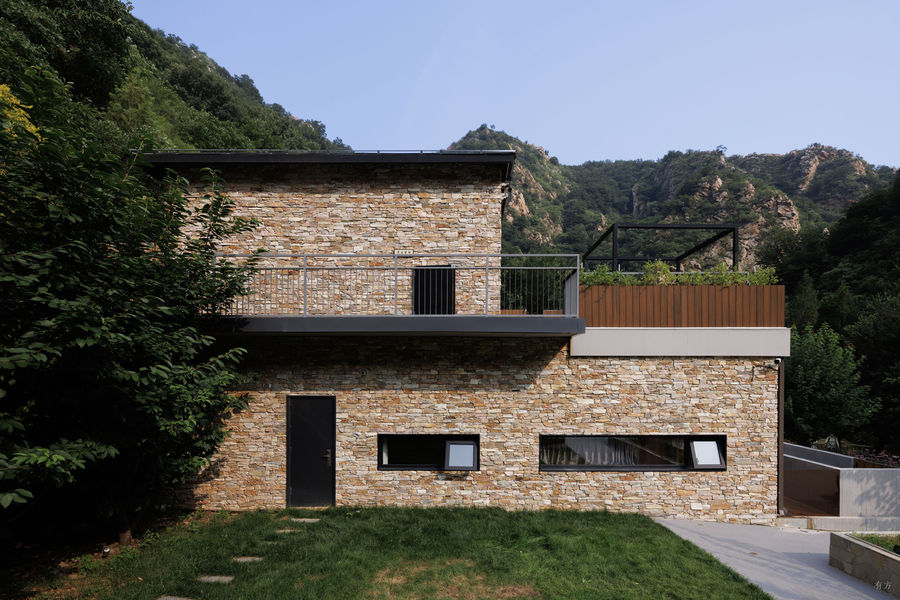
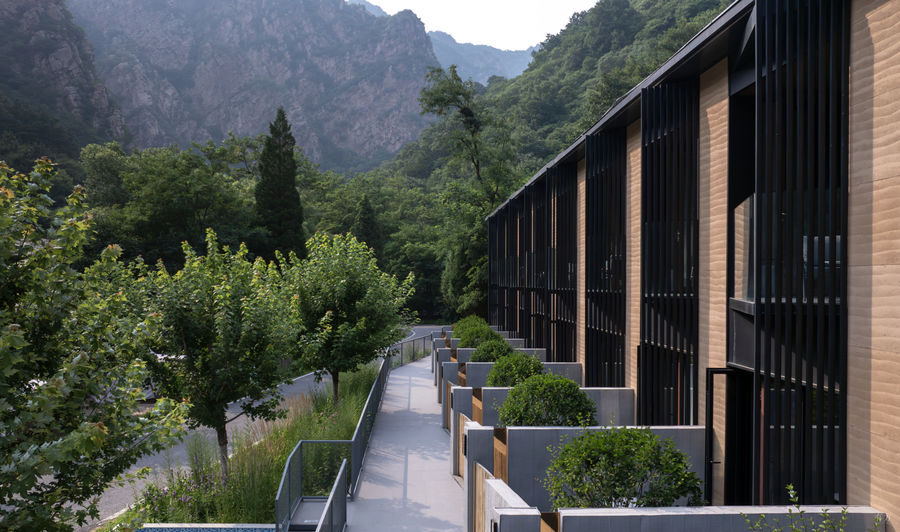
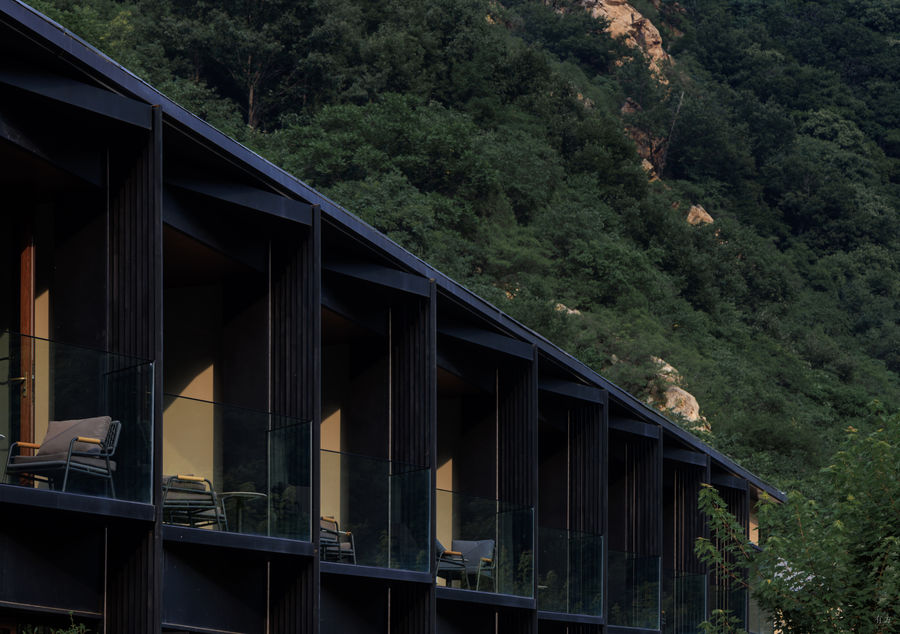
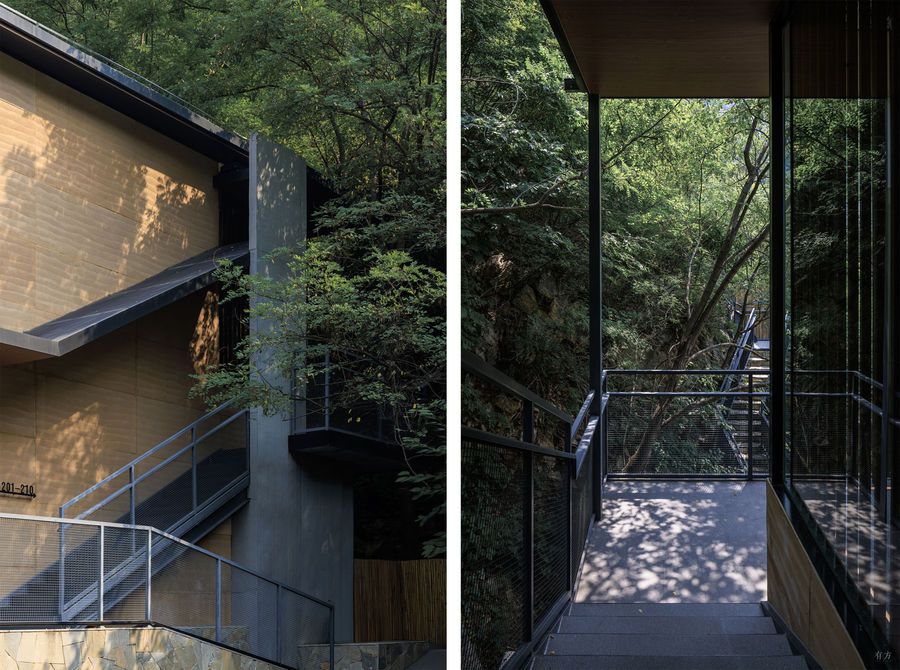
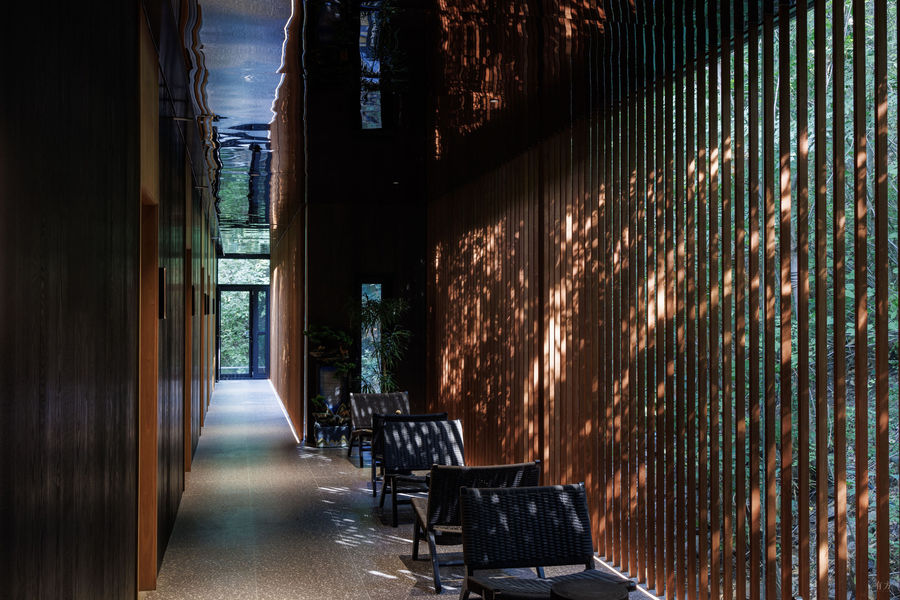
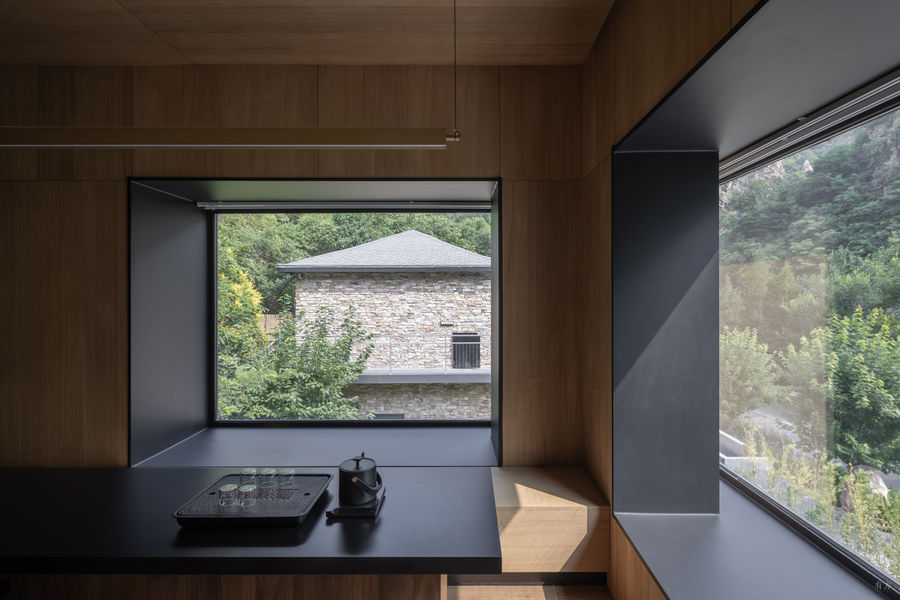
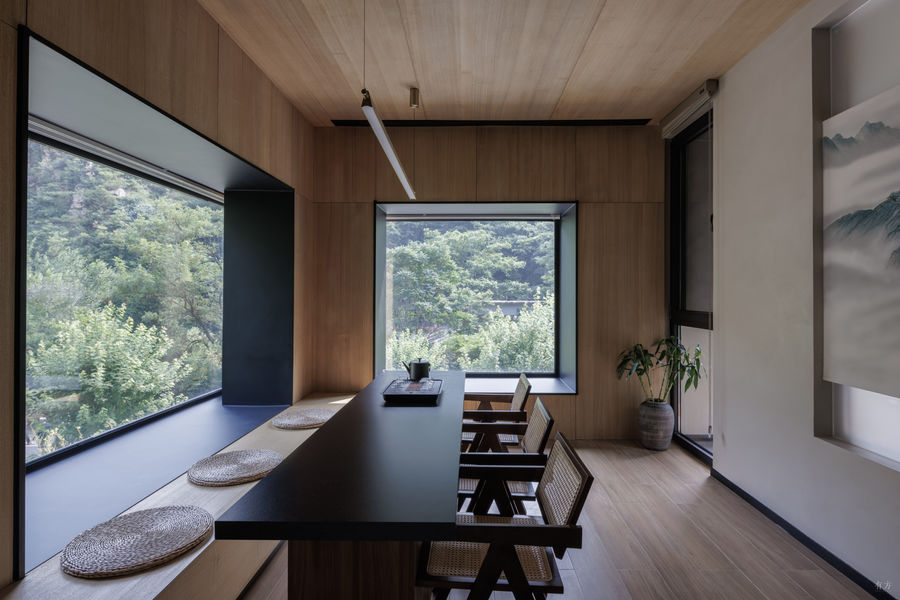
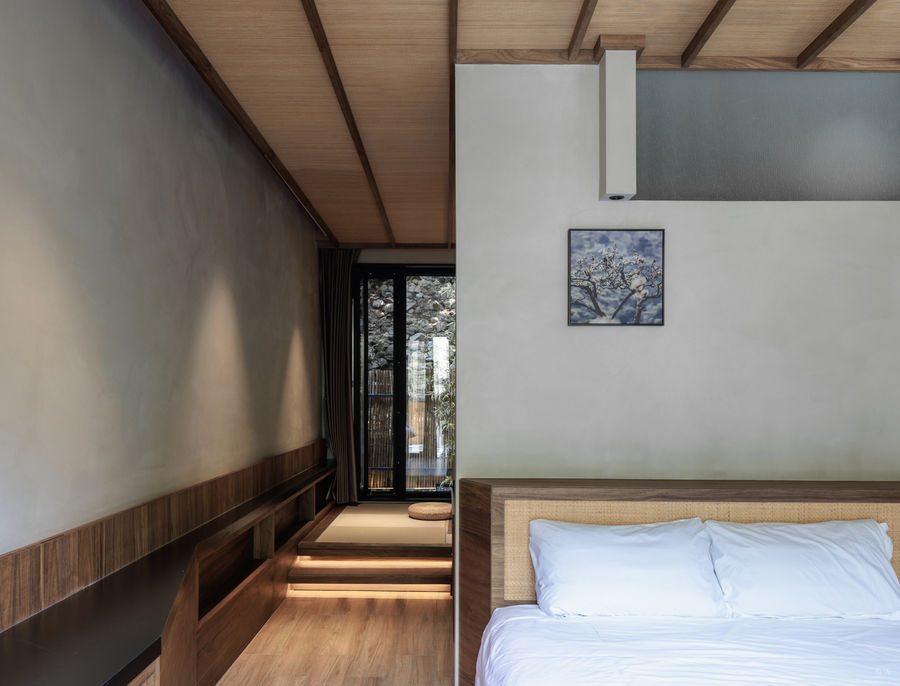
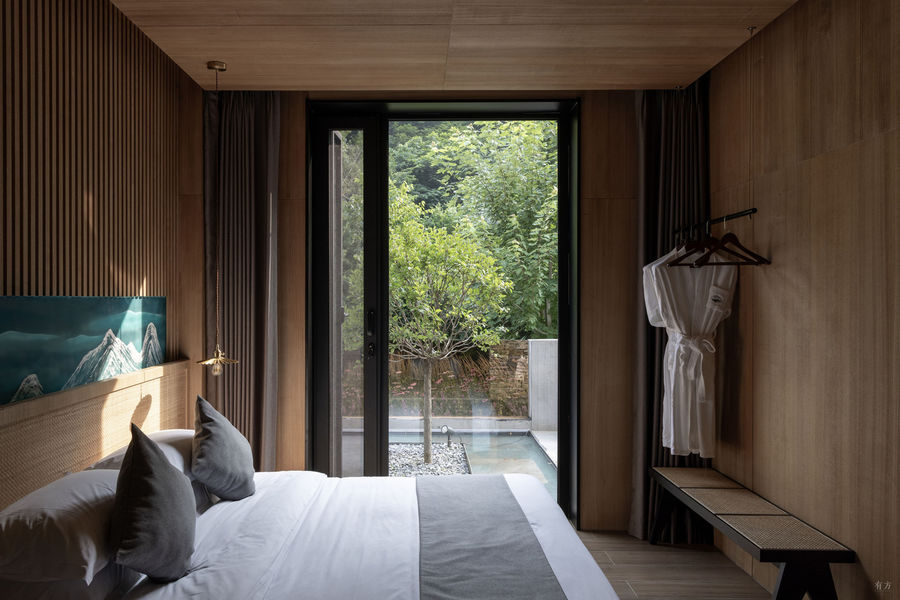
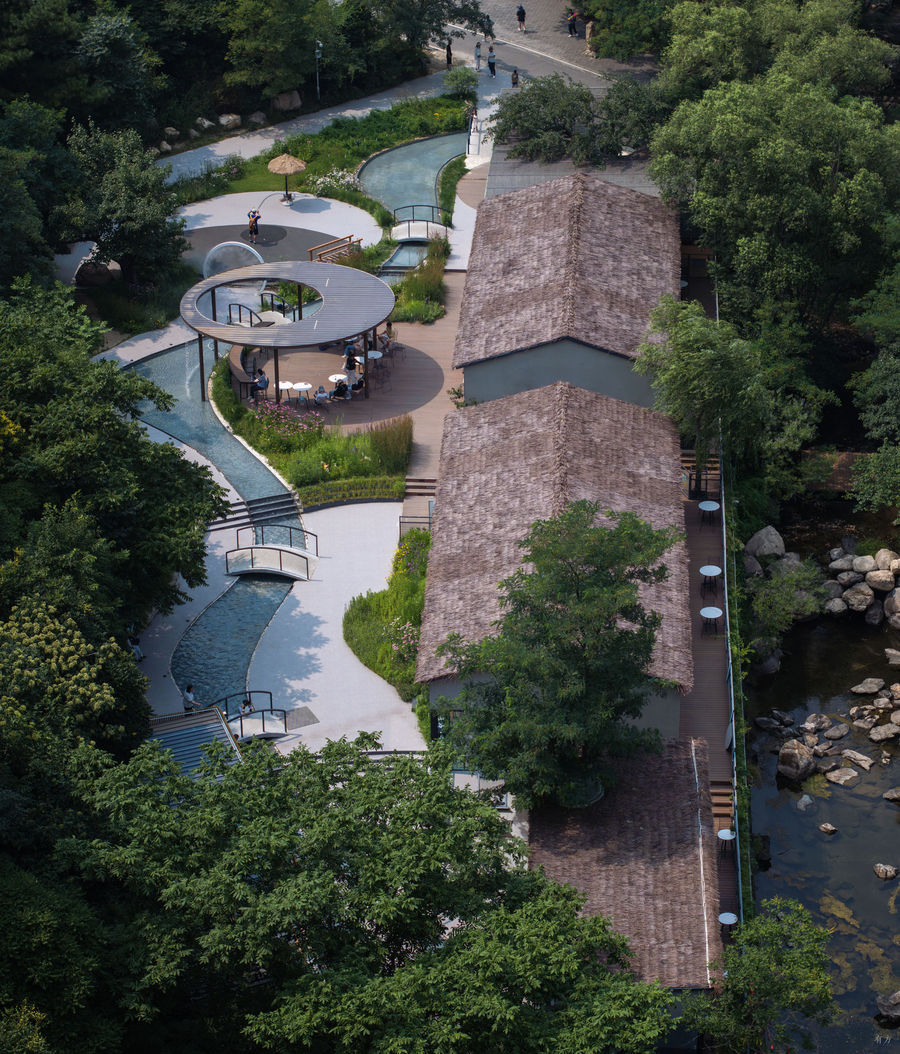
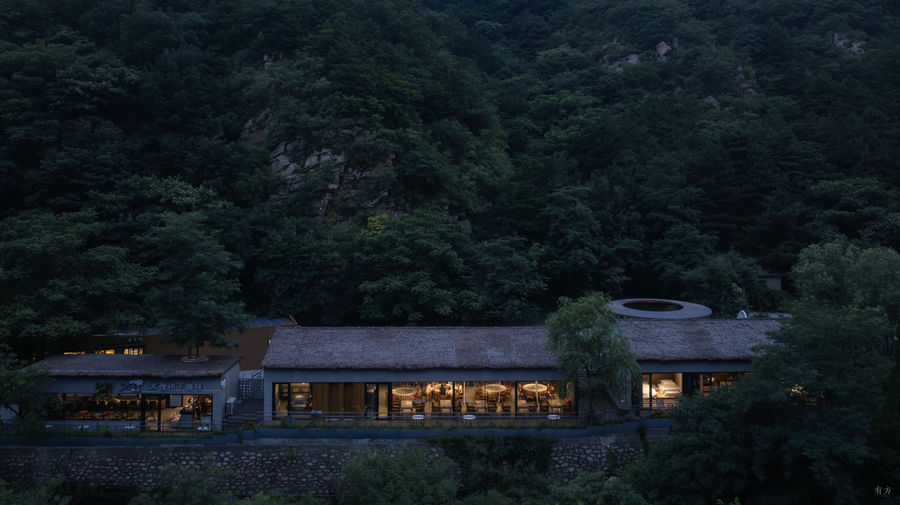
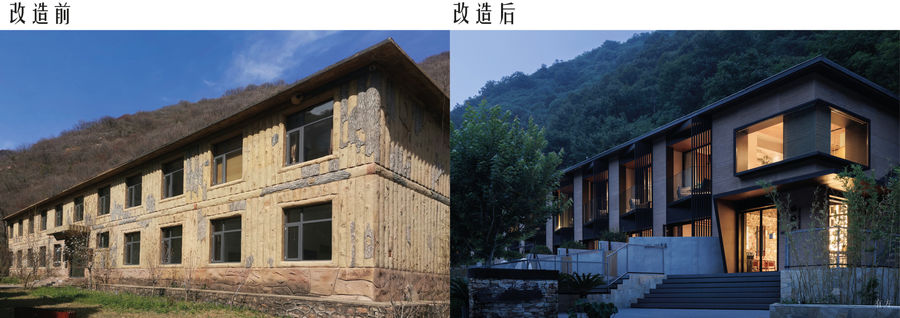
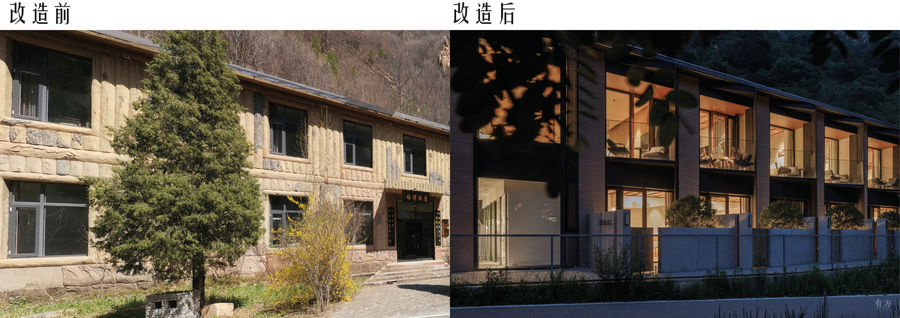
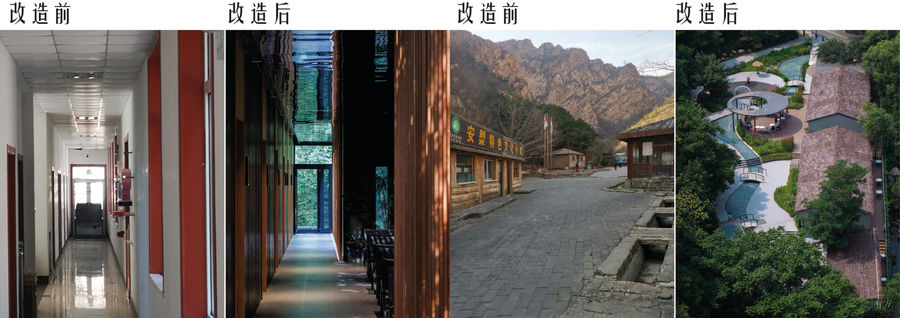
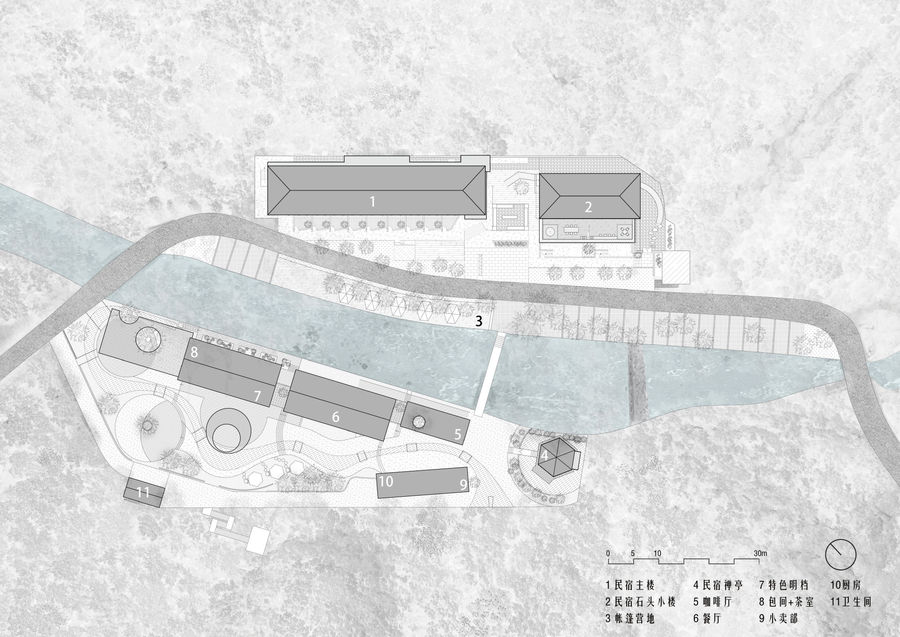
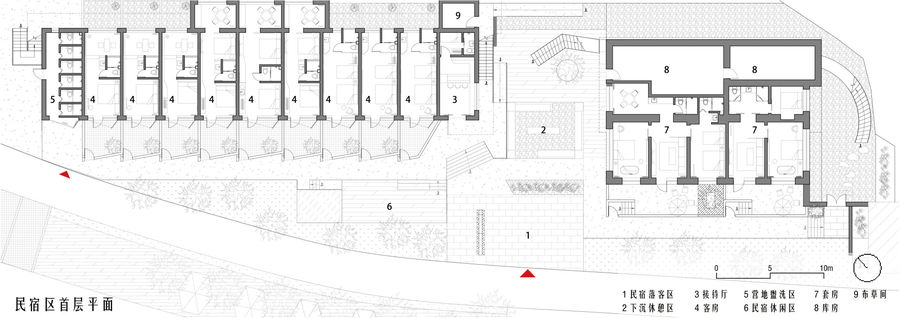
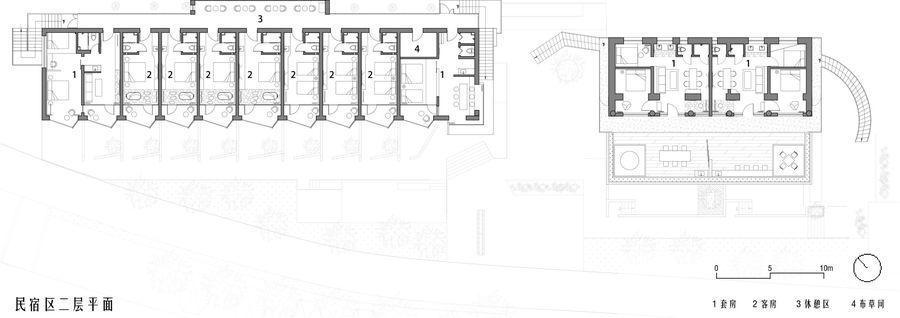











评论(0)